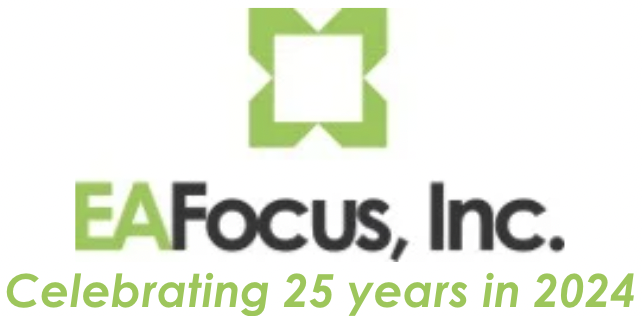
Media Contact: Barbara Fornasiero, EAFocus Communications; barbara@eafocus.com; 248.260.8466; Kelly Durso, Dickinson Wright; kdurso@dickinsonwright.com; 313.223.3085
Troy, Mich.—February 9, 2021—The pandemic continues to spawn the growth of counterfeit products, and the recent announcement that hospitals in Washington state received bogus N95 masks has put front line healthcare professionals on alert. Dickinson Wright PLLC intellectual property attorney Andrea Arndt, whose legal practice includes battling counterfeiters on behalf of her high-profile clients, says COVID-19 has created new products that can be cheaply replicated, but it’s also brought the counterfeit challenge into the mainstream.
“N95 masks, face shields, hand sanitizers, gloves – all of these products were used prior to the pandemic, they just weren’t used in such vast quantities. And, with the exception of hand sanitizer, most were used chiefly by medical professionals,” Arndt said. “So perhaps it’s not unexpected that counterfeiting has increased, especially combined with the spike in online buying of products that, pre-pandemic, were usually purchased in a store. But counterfeiting is not new, it’s been vexing brand owners for decades and growing right along with e-commerce.”
Arndt is working with clients right now on innovative processes to combat counterfeiters. While some of the processes are client trade secrets, Arndt is also devising strategies to quickly obtain enforceable intellectual property rights for use in take-down notices and temporary restraining order (TRO) proceedings.
“I use clients’ enforceable intellectual property rights to remove the knock-off products from the third-party websites and restore the clients’ exclusivity to sell their products online. I also use the clients’ patents to invalidate the counterfeiters’ subsequent patents,” Arndt said, adding that she successfully represented a company in invalidating Chinese and European patents granted covering the counterfeit products.
In the case of the fake N95 masks, the manufacturer of the legitimate product, 3M, which already has lawsuits underway against other counterfeiters, had to analyze and verify that the masks were knock-offs. For some other fakes, it’s immediately recognizable. For example, will a designer knock-off purse purchased online from a no-name retailer fool true fashion mavens? Generally not, according to Arndt, explaining that intellectual property work in the fashion industry extends to knock-off designer products.
“Purses, wallets and signature products that retail for hundreds or even thousands of dollars are ripe for counterfeiting because they can be relatively cheap to replicate,” Arndt said. “But there are telltale signs of fakes, usually with the material, zippers and fasteners and even the designer logo itself, which can be slightly altered from the original. In some knock-off purses, the stitches are uneven or even missing, such that the fabric is glued rather than sewn. Some luxury brands are trying new ways to assist their customers in authenticating their products, but there is not a perfect system – at least not for now.”
But why should consumers care about whether they are purchasing the actual product or a knock-off if it means they are saving a few – or even hundreds of – dollars? Besides doing the right thing, Arndt points out safety considerations.
“It’s not only that the owners of trusted brands take great care to build up a product by investing in research and development and marketing and advertising, they also focus on health and safety and follow national guidelines for their industry,” Arndt said. “Besides not wanting to run afoul of the law by purchasing counterfeit products, you really do not know what you are purchasing.”
Arndt adds that the health factor alone should keep people from buying knock-off COVID-19 protection products.
“The knock-off products may not be made according to the necessary specifications to function properly and give users a false sense of protection. Furthermore, knock-off food products, pet food, electrical products and even clothing – which may not meet fire retardant standards or be made from material that affects your skin – can also pose health risks. For example, knock-off cosmetic products have been found to include toxic and unsafe ingredients such as mercury, lead, cyanide, arsenic, paint-stripper, and even feces. A trip to the hospital is not worth the few bucks saved by purchasing a knock-off product,” Arndt said.
About Dickinson Wright PLLC
Dickinson Wright PLLC is a general practice business law firm with more than 475 attorneys among more than 40 practice areas and 16 industry groups. Founded in 1878, the firm has 19 offices, including six in Michigan (Detroit, Troy, Ann Arbor, Lansing, Grand Rapids, and Saginaw) and 12 other domestic offices in Austin and El Paso, Texas; Chicago, Ill; Columbus, Ohio; Ft. Lauderdale, Fla.; Lexington, Ky.; Nashville, Tenn.; Las Vegas and Reno, Nev.; Phoenix, Ariz.; Silicon Valley, Calif.; and Washington, D.C. The firm’s Canadian office is located in Toronto.
Dickinson Wright offers our clients a distinctive combination of superb client service, exceptional quality, value for fees, industry expertise, and business acumen. As one of the few law firms with ISO/IEC 27001:2013 certification and one of the only firms with ISO/IEC 27701:2019 certification, Dickinson Wright has built state-of-the-art, independently-verified risk management procedures, security controls and privacy processes for our commercial transactions. Dickinson Wright lawyers are known for delivering commercially oriented advice on sophisticated transactions and have a remarkable record of wins in high-stakes litigation. Dickinson Wright lawyers are regularly cited for their expertise and experience by Chambers, Best Lawyers, Super Lawyers, and other leading independent law firm evaluating organizations.
###


